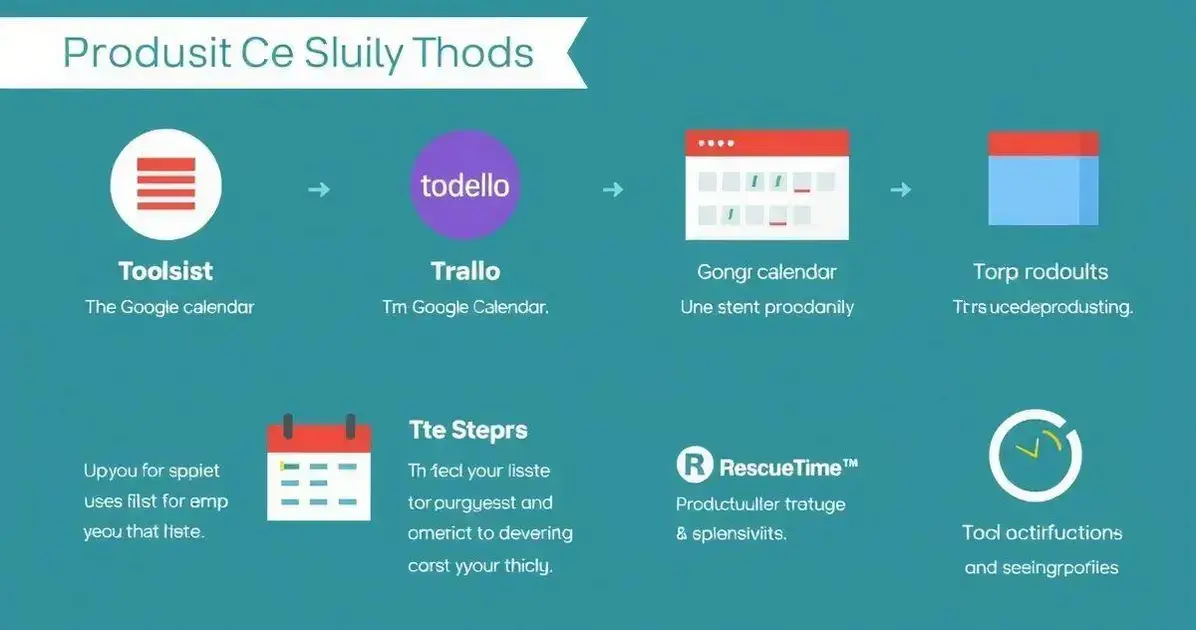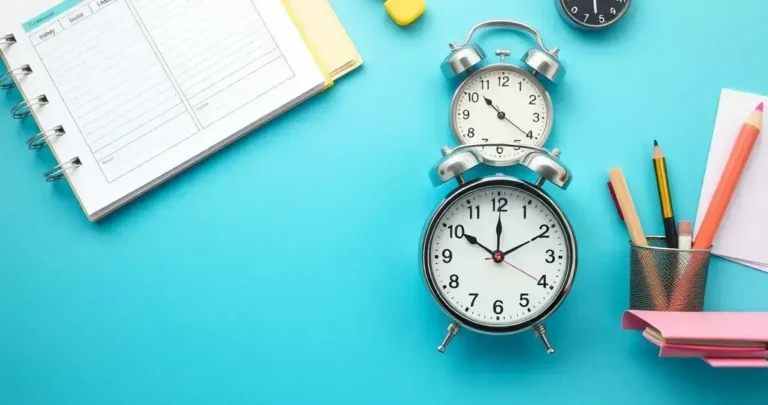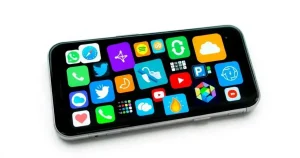Announcements
Time Management Hacks That Work aren’t just trendy tips — they’re real strategies that help you take control of your day without the overwhelm. If time constantly feels like it’s slipping through your fingers, it’s time to flip the script with approaches that actually make a difference.
Let’s be real: no one is born knowing how to manage time perfectly. But with a few intentional changes and smart techniques, you can get more done, feel less stressed, and still have time for yourself.
Ready to finally feel on top of your tasks instead of buried by them? Keep reading — the insights ahead might be exactly what you’ve been looking for.
Announcements
Understanding Time Management
Understanding time management is crucial for anyone looking to improve their productivity. It involves planning and organizing how much time you spend on specific activities.
Effective time management enables you to work smarter, not harder, allowing you to get more done in less time—even when time is tight and pressures are high.
Announcements
The Importance of Time Management
By mastering time management, you can achieve your goals with less stress and better results. This means more time for what truly matters, such as spending time with family, pursuing hobbies, or simply enjoying life.
When you manage your time effectively, you can prioritize tasks and focus on high-impact activities.
Key Principles of Time Management
Several principles guide effective time management:
- Prioritization: Identify which tasks are most important and attack them first.
- Planning: Utilize tools like to-do lists, planners, and calendars to layout your tasks and deadlines.
- Setting Goals: Establish clear and realistic goals to motivate yourself and measure progress.
- Delegation: If appropriate, delegate tasks to others to free up your time for higher-level activities.
Practical Steps for Better Time Management
To enhance your understanding of time management, consider these practical steps:
- Keep a time diary to analyze how you currently spend your time.
- Set specific time limits for tasks to boost urgency.
- Avoid multitasking; focus on completing one task at a time for better efficiency.
- Regularly review and adjust your methods to find what works best for you.
Incorporating these time management strategies can lead to a more productive and fulfilling life, making it essential for personal and professional success.
Top 5 Effective Time Management Hacks
To boost your productivity, consider these Top 5 effective time management hacks that can transform how you work and live.
1. Use the Pomodoro Technique
This method involves working for 25 minutes and then taking a 5-minute break. After four intervals, take a longer break of 15-30 minutes. This structure helps maintain focus and prevents burnout.
2. Prioritize Your Tasks
Start your day by listing your tasks and ranking them by importance. Use a system like the Eisenhower Matrix to separate tasks into four categories: urgent & important, important but not urgent, urgent but not important, and neither urgent nor important. This way, you focus on what truly matters.
3. Set Clear Goals
Framework your tasks around SMART goals—Specific, Measurable, Achievable, Relevant, and Time-bound. This approach ensures that your goals are clear, tangible, and achievable, helping you stay on track.
4. Limit Distractions
Identify your biggest productivity killers and eliminate them. This might mean silencing your phone, closing unnecessary browser tabs, or creating a dedicated workspace. A focused work environment can greatly enhance your productivity.
5. Review Your Day
At the end of each day, take a few minutes to review what you accomplished. Identify what went well and what can be improved. This reflection helps you adjust your approach and continually refine your time management skills.
Tools for Better Time Management

Having the right tools for better time management can make a big difference in how you organize your tasks and meet deadlines. Here are some effective tools to consider:
1. Todoist
Todoist is a task manager that helps you create to-do lists. It allows you to set deadlines, priorities, and organize tasks by projects. The clean interface makes it easy to use and prioritize effectively.
2. Trello
Trello uses boards and cards to help manage projects visually. You can create a board for each project and add tasks as cards that you can move around. This visual approach helps you see the progress of your tasks at a glance.
3. Google Calendar
This scheduling tool allows you to keep track of your appointments and deadlines. You can set reminders for important tasks and share your calendar with others to coordinate schedules easily.
4. Focus@Will
This app provides music designed to improve concentration. It helps minimize distractions while working by using neuroscience to select music that enhances focus, boosting your productivity during work sessions.
5. RescueTime
RescueTime is a tracking tool that monitors how you spend your time on your computer or mobile device. It gives you insights into your habits, helping you identify areas where you can improve your efficiency and reduce wasted time.
Common Time Management Mistakes to Avoid
Being aware of common time management mistakes to avoid is essential for improving your productivity. Here are some pitfalls that can hinder your effectiveness:
1. Procrastination
Putting off tasks can lead to unnecessary stress and missed deadlines. Break your work into smaller tasks and tackle them one by one to avoid falling into this trap.
2. Multitasking
While it may seem efficient, multitasking can actually reduce your focus and effectiveness. Instead, concentrate on one task until completion before moving to the next.
3. Lack of Goals
Not setting clear goals can lead to wasted time and effort. Establish SMART goals to guide your daily tasks and keep you on track.
4. Overcommitting
Taking on too many responsibilities can stretch your time thin and lead to burnout. Learn to say no or delegate tasks to ensure you can focus on your priorities.
5. Ignoring Breaks
Failing to take regular breaks can decrease your productivity. Schedule short breaks to recharge your mind, which can help enhance focus and motivation.
How to Create a Personal Time Management Plan
Creating a personal time management plan can help you make the most of your time and reach your goals. Follow these steps to design an effective plan:
1. Set Clear Goals
Begin by defining your short-term and long-term goals. What do you want to achieve in the next week, month, or year? Write down specific and measurable goals to give you direction.
2. Analyze Your Current Time Use
Track how you spend your time for a week. Note all your activities and categorize them (work, leisure, chores, etc.). This analysis will help you identify how much time you have available for your goals.
3. Prioritize Your Tasks
Based on your goals and time analysis, list your tasks in order of importance. Use a prioritization method, such as the Eisenhower Matrix, to clarify which tasks are urgent and important.
4. Create a Daily Schedule
Design a daily schedule that allocates specific time blocks for your tasks, including breaks. Ensure your schedule aligns with your peak productivity periods for more effective time use.
5. Review and Adjust Regularly
At the end of each week, review your progress. Are you meeting your goals? What can be improved? Adjust your plan as needed to reflect changes in priorities and commitments.
FAQ – Frequently Asked Questions about Management Hacks That Work
What are time management hacks?
Time management hacks are strategies or techniques that help you optimize your time and increase your productivity.
How can the Pomodoro Technique improve my efficiency?
The Pomodoro Technique encourages focused work for 25 minutes followed by a short break, which can increase concentration and reduce burnout.
Which tools are recommended for better time management?
Tools like Todoist, Trello, Google Calendar, Focus@Will, and RescueTime can help you organize tasks, manage schedules, and enhance productivity.
What are common time management mistakes to avoid?
Common mistakes include procrastination, multitasking, lack of clear goals, overcommitting, and ignoring breaks.
How can I create an effective personal time management plan?
To create a personal time management plan, set clear goals, analyze your current time use, prioritize tasks, create a daily schedule, and regularly review your progress.
Why is it important to analyze how I spend my time?
Analyzing your time helps identify areas where you can improve efficiency and better allocate time towards your goals.







